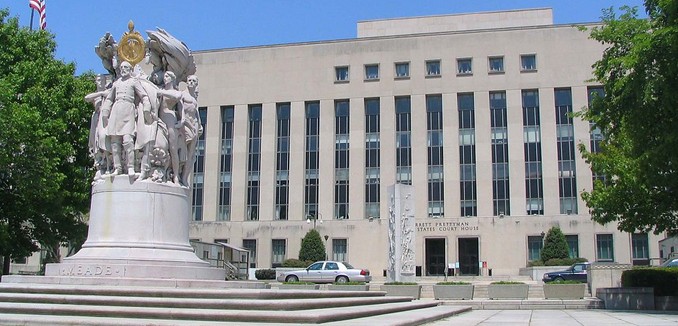A federal judge ruled Friday that a lawsuit against the leadership of the American Studies Association (ASA) for endorsing an academic boycott of Israel may go forward.
The lawsuit, which was filed a year ago, claimed that the ASA had acted outside the scope of its charter by approving a resolution in favor of boycotting Israel in 2013, Inside Higher Ed reported. Judge Rudolph Contreras rejected claims from the defendants that the suit violated the First Amendment and affirmed that the plaintiffs’ claims of corporate waste, breach of contract, and violation of the D.C. Nonprofit Corporation Act could go forward. The lawsuit was filed by a group of American studies professors.
Legal expert Eugene Kontorovich, who has been advising the plaintiffs, noted that the judge’s decision disproved claims by Palestine Legal—a group that supported the ASA in adopting the resolution to boycott Israel—that the lawsuit’s intent was to “chill speech supporting Palestinian rights,” and predicted it would be “thrown out by the court.”
Kontorovich observed that Contreras “noted the obvious” by ruling that “the dispute does not involve any state action, but rather members of an organization seeking to enforce the group’s own private rules and arrangements,” and was thus not a First Amendment issue.
“The Association suffered and its members suffered when a handful of zealots decided to push a personal, political agenda against one country,” said Jerome Marcus, a lawyer who represents the plaintiffs.
“This is an important victory, not only for our clients, but for everyone who is concerned about the anti-Semitic BDS [Boycott, Divestment, Sanctions] movement and its deleterious impact on academic institutions,” stated Kenneth L. Marcus, president of the Louis D. Brandeis Center for Human Rights Under Law, which also represents the plaintiffs. “This decision will send a clear message about the need to resist unlawful BDS resolutions.”
“The circumstances of the ASA’s purported adoption of an anti-Israel BDS resolution are deeply shocking,” said Harvard University Law Professor Jesse Fried, who advised the legal team representing the plaintiffs. “The purpose of the ASA, like other academic organizations is to promote scholarship, teaching, and the exchange of ideas. A handful of insiders at the ASA decided to use their power and the ASA’s resources—that is, other people’s money—to flip this purpose on its head and turn the ASA into a vehicle for selectively impeding scholarship, teaching, and the exchange of ideas.”
“The insiders then claimed victory even though fewer than 20% of members expressly approved the BDS resolution, in a vote marred by alleged manipulation and procedural irregularities,” Fried continued.
The significance of the lawsuit against the ASA was summed up by Ben Cohen, senior editor of The Tower, last year:
The charter of the ASA restricts its activities to the universe of American Studies, which like any other discipline requires academic freedom—and not bigoted, self-imposed academic restraints—in order to flourish.
A successful legal campaign against the ASA boycott will likely rebound onto the other faculty associations that have endorsed this insidious campaign. The boycotters will repeat over and over again that such action encroaches upon their First Amendment rights. Like every single one of their assertions, this too is a lie.
Nobody is questioning their right to preach this coarse and hateful discourse. Implementation of their political program, however, is a vastly different story, as it involves active discrimination and requires civic organizations to ditch their own charters. Now that they’ve figured that out in Beirut, university administrations and faculty associations here in America have no excuse not to do the same.
The Boycott, Divestment, Sanctions movement aims to vilify Israel and pressure the Jewish state into Palestinian demands antithetical to peace. Many BDS leaders have publicly opposed the two-state solution and affirmed that their campaign seeks Israel’s destruction.
[Photo: Phyzome / WikiCommons ]




